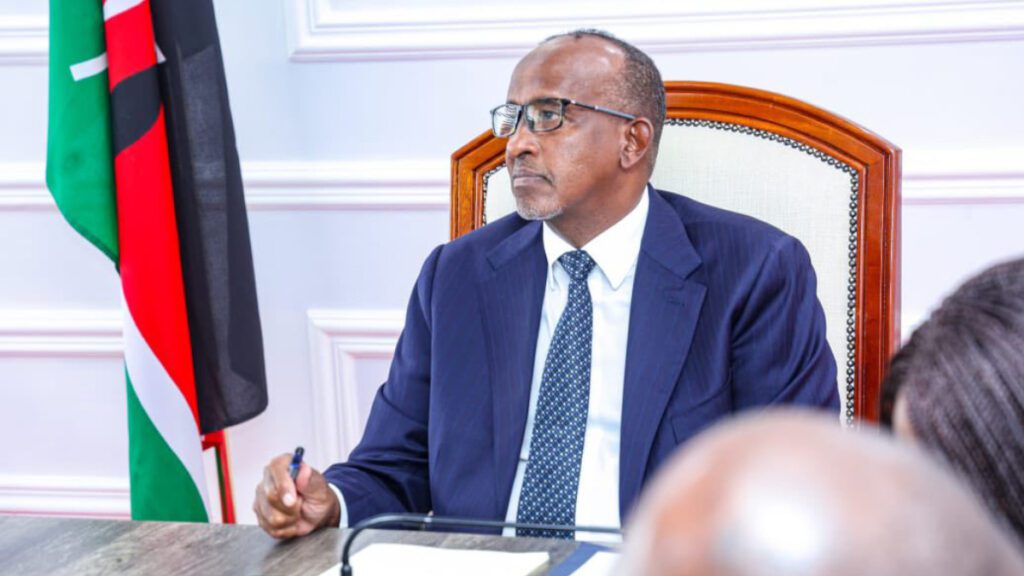The Ministry of Health has rolled out comprehensive reforms to restore order, fairness, and transparency in the Bachelor of Science in Nursing (BScN) internship programme, following a damning audit that exposed major irregularities in the 2025/2026 placement cycle.
Speaking during a consultative meeting with deans from universities offering nursing programmes, Health Cabinet Secretary Aden Duale outlined urgent interventions designed to streamline the internship process and align it with national health workforce priorities.
“These reforms are about safeguarding the future of healthcare in Kenya,” said CS Duale. “We are building a system that ensures fairness, accountability, and quality in health professional training.”
Among the measures introduced is the digitization of internship submissions. A centralized digital platform will be launched to streamline the application process, improve data verification, and eliminate errors that previously marred the exercise. The Ministry will also establish an Internship Coordination Unit to manage placements, ensure regulatory compliance, and enhance collaboration with universities.
In a major policy shift, only students placed through the Kenya Universities and Colleges Central Placement Service (KUCCPS) will be eligible for government-sponsored internships. Self-sponsored students will be required to fund their own internship training, marking an end to previous practices that saw both categories compete for limited government slots.
To support proper planning, universities have been directed to strictly adhere to admission quotas approved by the Commission for University Education (CUE). The Ministry warned that over-enrolment undermines quality training and distorts workforce projections.
The reforms come in response to an audit that uncovered serious anomalies in internship allocations. According to the Ministry of Health, 42 students who had not completed their training were wrongly included in the internship list submitted by the Nursing Council of Kenya (NCK). At the same time, 339 eligible students were erroneously excluded, while several foreign students—who are not entitled to government sponsorship—were improperly listed.
Ten universities were implicated in the irregular submissions. These include Kenyatta University, Daystar University, Kenya Methodist University, Masai Mara University, University of Embu, Mount Kenya University, Umma University, Baraton University, Karatina University, and Masinde Muliro University of Science and Technology.
The Nursing Council of Kenya was also faulted for failing to verify student submissions before forwarding them to the Ministry. In light of these findings, the Ministry has revoked the 42 irregular placements and formally notified all affected internship centres.
In addition, the Director-General for Health will issue standardised national guidelines under Section 17(j) of the Health Act. These will clearly define eligibility criteria, submission deadlines, and the roles of all stakeholders involved in the internship process.
On the issue of funding, CS Duale said the government is working with the National Treasury to secure KSh408 million to support the placement of an additional 339 verified nursing interns—beyond the Public Service Commission’s current cap of 2,000 placements.
“These reforms are necessary to ensure that all qualified nursing interns are given fair opportunities without compromising the integrity of the process,” the CS emphasized.
Duale assured the public that all institutions found culpable will be held accountable. He reaffirmed the Ministry’s commitment to enforcing professionalism and safeguarding patient safety in the Kenyan healthcare system.


